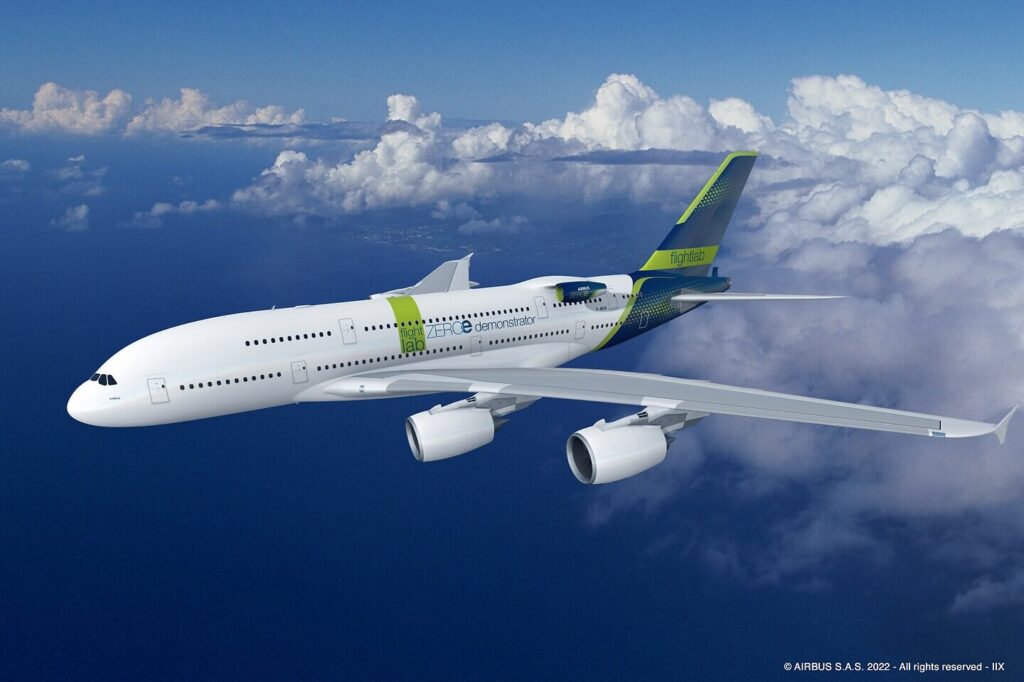The European aircraft manufacturer Airbus has revealed that it will use the A380 as a test bed aircraft for its ZEROe project, which aims to develop a zero-emission aircraft by 2035. The Airbus A380 flight demonstrator with hydrogen propulsion systems is expected to fly around 2025.
The manufacturer believes that this technology could be a game changer for commercial aviation as the industry seeks ways to make flying emissions-free.
“This is the most significant step undertaken at Airbus to usher in a new era of hydrogen-powered flight since the unveiling of our ZEROe concepts back in September 2020,” Sabine Klauke, Airbus Chief Technical Officer announced in a press statement.
Now that is BIG news! #Hydrogen combustion technology plus an #A380 = our #ZEROe demonstrator.
Watch the video to discover how we’re developing the first zero-emission aircraft. pic.twitter.com/a6SbUAiN8v
— Airbus (@Airbus) February 22, 2022
The Airbus A380 flight demonstrator will be fitted with a hydrogen engine developed by CFM International, a joint company between the US-based GE Aviation and the French manufacturer Safran. The energy companies Air Liquide and Plug Power will also provide technical support to the program.
The hydrogen engine will be mounted along the rear fuselage of the A380 test bed aircraft “to allow engine emissions, including contrails, to be monitored separately from those of the engines powering the aircraft”.
The hydrogen engine will be assembled in the United States. CFM International will complete the engine ground test campaign ahead of the A380 flight test.
Klauke added: “By leveraging the expertise of American and European engine manufacturers to make progress on hydrogen combustion technology, this international partnership sends a clear message that our industry is committed to making zero-emission flight a reality.”
The International Air Transport Association (IATA) along with the global aviation players such as Airbus and Boeing have pledged to achieve net-zero carbon emissions by 2050.

